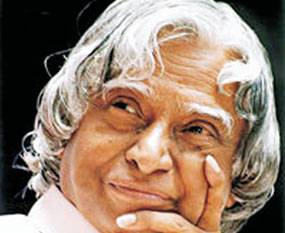 In my life, which has been long and eventful, I have seen great heights of success. I have been part of ventures that have contributed to the growth of our nation in the field of science and technology; I have also had the privilege of occupying the highest office in the country.
In my life, which has been long and eventful, I have seen great heights of success. I have been part of ventures that have contributed to the growth of our nation in the field of science and technology; I have also had the privilege of occupying the highest office in the country.
There are many achievements to look back upon—some of my own doing and some where I had the privilege to be part of teams, which were immensely talented. Yet, I firmly believe that unless one has tasted the bitter pill of failure, one cannot aspire enough for success.
I have seen both sides of the coin and have learnt life’s toughest lessons when I have stared into the pit of despair that failure brings with it. These lessons are well worth recounting and remembering, as they have helped me work my way through many difficult situations.
One of the earliest such episodes from my life happened when I was a student of aeronautics at MIT. My design teacher there was Professor Srinivasan, who was also the head of the institute. Once, we were placed in teams of four students each, and our team had to design a low-level attack aircraft. I was in charge of coming up with the aerodynamic design. We worked very hard for weeks. My teammates were designing all the other components, like the propulsion, structure, control and instrumentation. Since our other course work was over at the time, we spent long hours discussing our ideas and researching them. We were all keen to impress our professors with our project. They kept an eye on the progress and after a few days, Professor Srinivasan asked to see the design I had created. When I showed it to him, he examined it with his characteristic critical eye. I stood by, waiting with bated breath to hear his verdict. I still remember the way his eyebrows crinkled as he looked at the paper spread out in front of him. Then he straightened up and his next words stunned me. ‘This is just not good enough, Kalam,’ he said. He turned stern eyes on me and continued, ‘I expected much better from you. This is dismal work and I am disappointed that someone with your talent has come up with work like this.’ I stared at the professor, dumbfounded. I had always been the star pupil in any class and had never ever been pulled up by a teacher for anything. This feeling of embarrassment and shame was a new experience for me, and I did not like it one bit. The professor shook his head some more and told me that I had to redo the entire design, starting from scratch and rethinking all my assumptions. I agreed shamefacedly. Then he broke the next bad news. Not only was I supposed to do the work again, I had to finish it in three days! ‘Today is Friday afternoon, young man. I want to see a flawless configuration drawing by Monday evening. If you are unable to do so, your scholarship will be stopped.’ I was even more dumbfounded now. The scholarship was the only way I could afford to be in college. Without it I would have to stop my studies. My own ambitions, the dreams of my parents, my sister and Jalalluddin flashed before my eyes and seemed to recede to a distance. It was unthinkable that the future could turn so bleak with a few words spoken by my professor. I got to work right away, determined to prove myself. I skipped dinner and remained at the drawing board through the night. Where earlier the components of my design were floating in my head, now they suddenly came together and took on forms and shapes I could work with. The concentrated work I put in seemed to brush away all the cobwebs of the mind. By the next morning, I was working like a man possessed. I took a short break to eat and freshen up, and went back to work again. By Sunday evening, my work was nearly complete—an elegant, neat design that I was proud of. While I was putting my final touches to it, I sensed a presence in the room. It was the professor, still dressed in his tennis whites, on his way back from the club. I didn’t know how long he had been standing there, watching me. Now, as our eyes met, he came forward. He looked critically at my work for many minutes. Then he straightened up and smiled. To my amazement, he hugged me affectionately. Then patting me on the back, he said, ‘I knew I was putting you under immense pressure when I rejected your work the other day. I set an impossible deadline—yet you have met it with work that I can only call outstanding. As your teacher, I had to push you to your limits so that you could recognize your own true potential.’ After two days of extreme dejection, those words were music to my ears and revived my confidence and self-belief.
That day I learnt two lessons: a teacher who has his or her student’s progress in mind is the best possible friend, because the teacher knows how to make sure that you excel. And second, there is no such thing as an impossible deadline. I have worked on many tough assignments, some of which had the country’s top leaders watching over my work, but the assurance I gained in my capabilities at MIT thanks to Professor Srinivasan, helped me later in life too.
After MIT, I started my working life. Little did I know that even tougher lessons were to follow. I went to work at Hindustan Aeronautics Limited (HAL) in Bangalore. There I learnt a lot about aircraft and their design and technology. By now I was very sure that I wanted a career in flying. When I emerged as a graduate aeronautical engineer from HAL, I got two job opportunities. One was in the air force and another at the Directorate of Technical Development and Production (DTD&P [Air]) at the Ministry of Defence. I received interview calls from both. The first was in Dehra Dun and the second in Delhi. I set forth with great hope in my heart.
My first close sight of an aircraft had been at MIT, where two decommissioned aircraft were kept for the demonstration of various subsystems to the students. They had held a special fascination for me, and I was drawn to them again and again. They represented for me man’s ability to think beyond his boundaries, and to give wings to dreams. I had chosen aeronautical engineering as my area of study because of my fascination for flying. Over the years I had nurtured the hope to be able to fly; to handle a machine as it rose higher and higher in the stratosphere was my dearest dream.
As I made my way from Madras to north India for the interviews, I played this dream over and over again in my mind. I was finally on the threshold of becoming a pilot! The journey from Tamil Nadu to Dehra Dun was a long one—not just geographically but also in terms of the distance I would travel from my humble origins to the prize that lay in the foothills of the Himalayas—a place in the air force as a pilot. I first halted in Delhi for my interview at DTD&P. I was confident and the interview was an easy one, not requiring me to push the boundaries of my knowledge too far. I spent a week in Delhi and then proceeded to Dehra Dun for my interview at the Air Force Selection Board. Here, I should mention that at the time, as a young man in my early twenties, I was just beginning to understand how to conduct myself in the wider world. When I had first moved from Rameswaram to the bigger cities for my studies, I was a shy, tongue-tied boy. I had to work hard to develop some assertiveness in my personality. I did this by trying to communicate with different people from all kinds of backgrounds. It was not easy and there were many moments of frustration and disappointment. However, by the time I finished my studies and headed out to look for a job, my personality was better developed and I was able to articulate my thoughts well enough in English and Tamil.
To return to my interview at the Air Force Selection Board, as I started answering the queries put forth to me, I realized that along with qualifications and engineering knowledge, they were also looking for a certain kind of ‘smartness’ in the candidate. Physical fitness and an articulate manner were what they were seeking. I gave it my best. I had wanted this job for so long and so deeply that I was determined yet anxious, confident and at the same time tense. Finally the results were announced. I had stood ninth in a batch of twenty-five. There were only eight places available. I had failed to realize my dream of becoming an air force pilot.
I still remember the ache in my heart as I attempted to make sense of what had happened. When a dearly held desire begins to break up, one can feel nothing but despair and emptiness as one tries to come to terms with the end of a dream. I could not bear to be indoors after seeing the result. I had to go out for air and be in the open, because all around me the walls seemed to close in. I walked around for a while till I reached the edge of a cliff. I stood there looking down at the shimmering waters of a lake and wondered what I should do next. Plans needed to be changed and priorities reassessed. I decided to go to Rishikesh for a few days and seek a new way forward.
I reached Rishikesh the next morning. I took a dip in the Ganga—a river I had heard so much about, but was seeing and experiencing for the first time in my life. I had been told about the Sivananda Ashram that was located a little way up a hill. I walked there. As I entered I felt a strange vibration, a sense of tranquility that was like a balm for my restless soul. Sadhus were seated all around, deep in meditation. I hoped that one among them would be able to answer the questions that troubled me and soothe my worries. I was granted an audience with Swami Sivananda himself. My being a Muslim did not affect him in any way. Instead, before I could speak, he asked what had filled me with sorrow. I only fleetingly wondered how he knew about my sadness before I embarked on an explanation of the recent developments in my life. He listened calmly and then washed away my anxieties with a smile of deep peacefulness. His next words were some of the most profound I had ever heard. His feeble yet deep voice still resonates when I think of them: ‘Accept your destiny and go ahead with your life. You are not destined to become an air force pilot. What you are destined to become is not revealed now but it is predetermined. Forget this failure, as it was essential to lead you to your destined path. Search, instead, for the true purpose of your existence… Surrender yourself to the wish of God.’
That lesson made a deep impression on my mind. Truly, why fight against destiny? This failure, I was sure, was part of a larger plan that God had for me. I ruminated long about this as I went back to Delhi. There, I found that I had been accepted as senior scientific assistant at DTD&P. I gave up my dream of making a career out of flying. I understood now that there was plenty of other work to be done, and I was going to put my heart and soul into the job that had been given to me. In this way I started my working life. Like me, I am sure almost every person who sets out with a goal has had to face unexpected obstacles. We’ve had to rethink our goals, reorient our paths. Each setback teaches us a new facet of life and something about our own personalities. When we tackle obstacles, we find hidden reserves of courage and resilience we did not know we had. And it is only when we are faced with failure do we realize that these resources were always there within us. We only need to find them and move on with our lives.
Extracts from the book My Journey, Transforming Dreams into Action by A.P.J.Kalam with permission from Rupa Publications India Pvt Ltd.





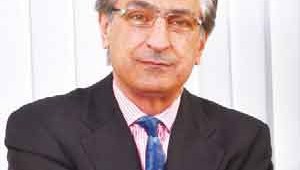
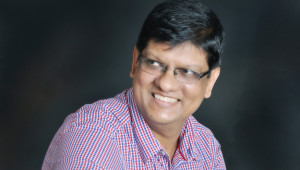

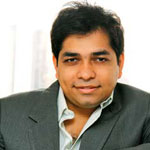
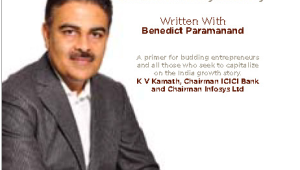

Recent Comments